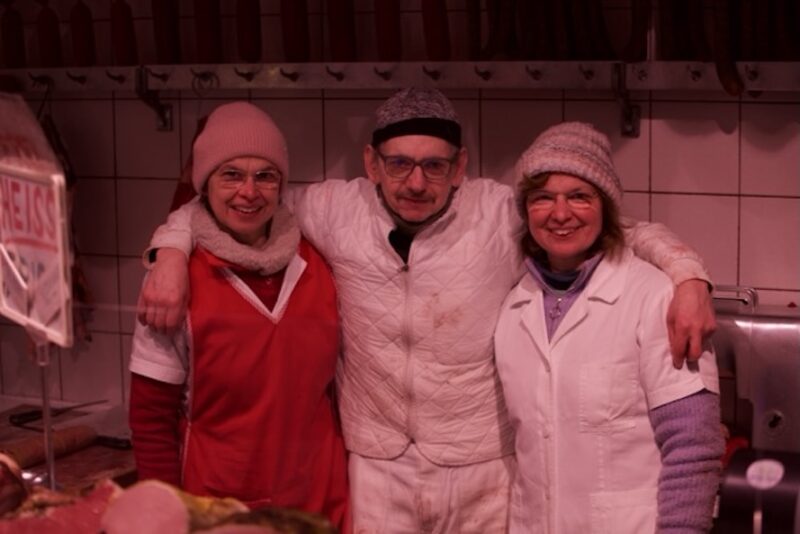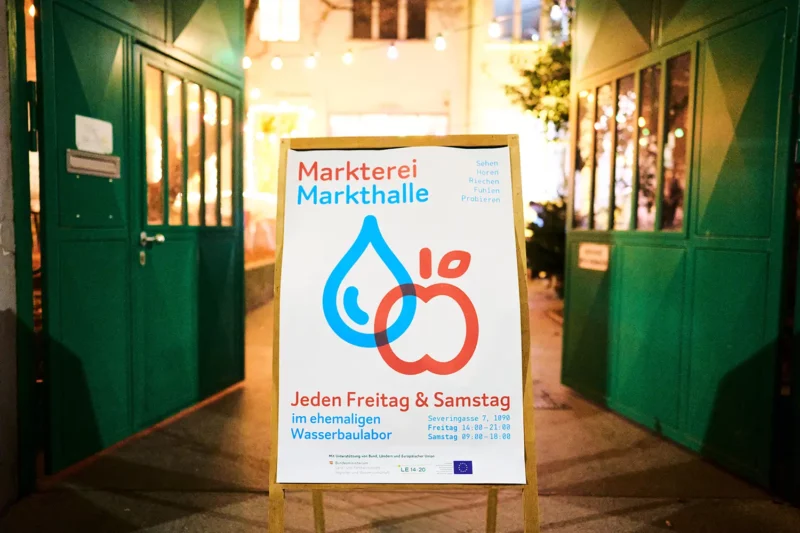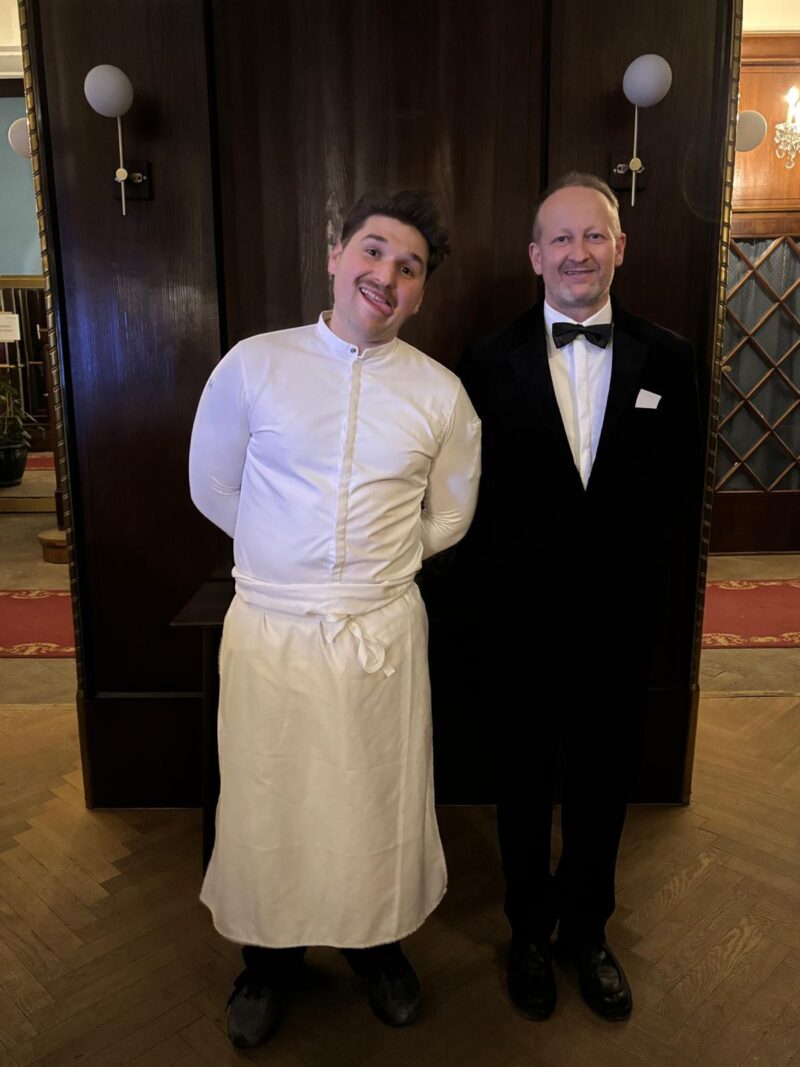The Diaspora Table: Bol Kepçe
This is our new series where Tas brings folks from different diaspora communities in Vienna to restaurants of their home countries to break bread and talk with the chef/owner.
Part One: Bol Kepçe, A Turkish Homestyle Restaurant and Pickle Shop in Favoriten.
I’m five minutes late when I arrive at Bol Kepçe, and Ali is waiting with a glass of hot pink turşu suyu.
He raises the pickle juice in greeting and offers a “hoşgeldin” – welcome. “I’m already excited,” he says.
Ali is a Turkish philosopher at the University of Vienna who left Istanbul in 2009, a time of life when he’d make 1pm stops for pickle juice, his favorite hangover cure. He and I are at Bol Kepçe for a meal with Sinem Turan, the owner, chef, fermentologist, and waiter at her no-frills Turkish homestyle restaurant and pickle shop, which has been serving Vienna’s 10th district for five-and-a-half years.
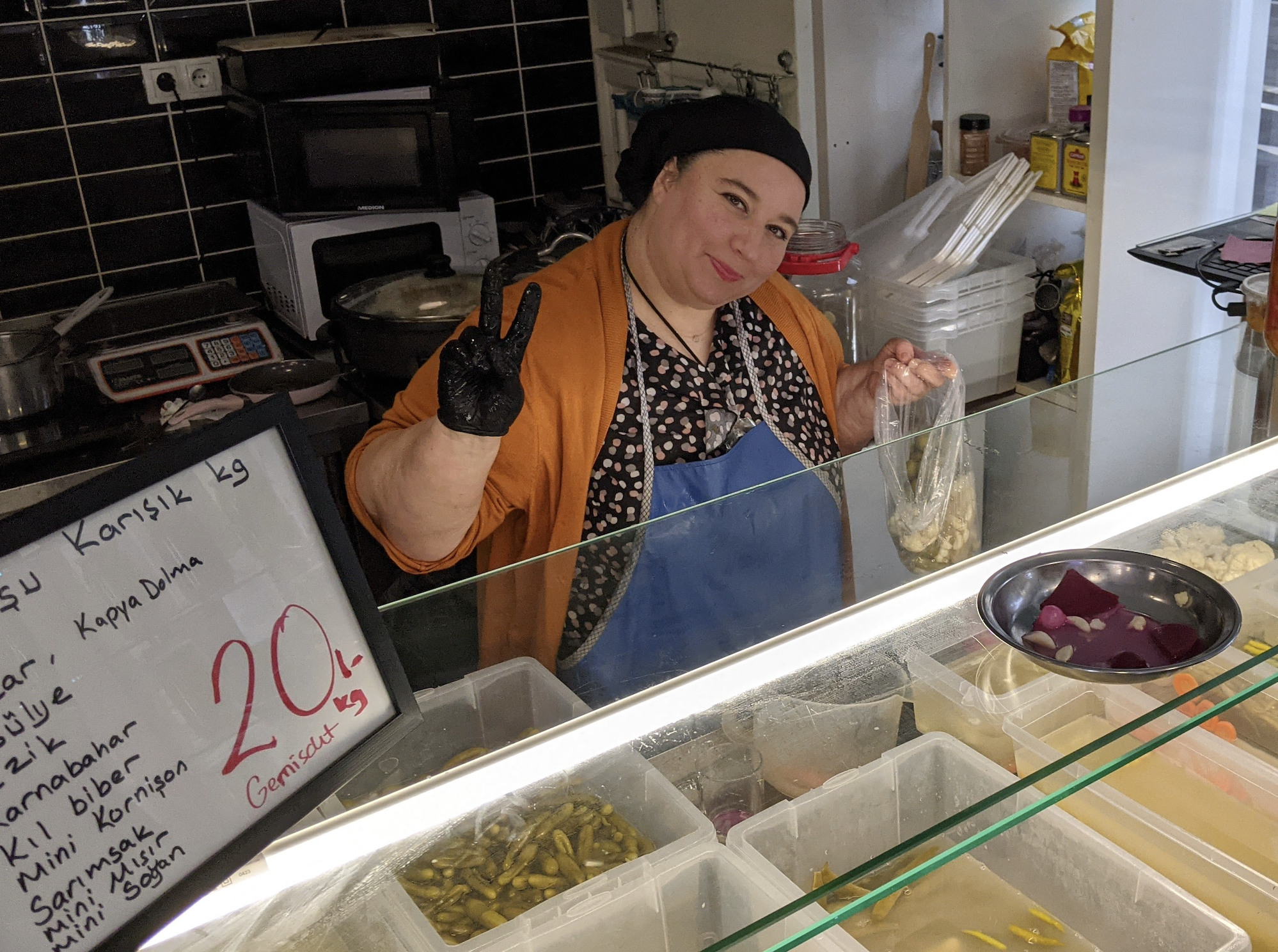
Anyone who’s spent more than a few days in Vienna knows Favoriten as an immigrant neighborhood with a large number of Turks and Southeast Europeans, and a growing community of Arabs and Afghans. This once mostly working-class district, home to a sizable Czech population from the Austro-Hungarian era, saw new waves of migration in the 1960s and 70s with the Gastarbeiter (guest worker) agreements, and again in the 90s after the fall of the Iron Curtain.
The district is a bit of a microcosm of Vienna’s broader demographic shifts, and nowhere is that more visible than in the food available all over its streets. To get to Sinem’s, I passed a Serbian grillhouse, a köfte spot, and an Afghan tandir bakery all on one street.
Bol Kepçe, with its affordable comfort food, has been a favorite of students at the nearby Central European University, Sinem says. “They come here looking for food and leave telling me I remind them of a relative. Their sister, their auntie, their mama. It doesn’t matter where they’re from – Africa, the Americas, even France!”
It’s true, Sinem exudes a warm, inviting energy that, let’s face it, is not so typical in Vienna. Ali and I laugh as a couple passes by and waves to her through the window.
“What happened to the hot food?,” a customer who’s just walked in asks Sinem as she greets him with a sing-songy hello. “Oh, I have some. It’s just, the pickles won!” she says.
A rainbow display of jarred vegetables line the windows, on the floor are black barrel jugs labeled with post-its in German and Turkish – “blumenköhl/karnabahar” – and the steam table, once laden with daily dishes of okra, eggplant, and stewed meat, is now covered in tubs of pickles. Pickled cabbage, pickled garlic, pickled peppers, even pickled almonds.
It feels just like an Istanbul pickle shop, Ali says, recalling his go-to turşucu in Beşiktaş. There’s even print-outs from a Turkish film where a couple famously splits up after too many arguments over how they like their pickles, with vinegar or lemon.
“Vinegar,” Sinem says, overhearing us. “Though I add a squeeze of lemon in mine.” Her pickles are crisp and crunchy, with a sour bite, and they put modernist takes on fermentation (which I admittedly love, a la Cucina Alchimia) to shame.
Also a shame is the limited options of daily dishes, which used to be in abundance at Bol Kepçe. “It was just too much work for little payoff,” Sinem says, and the locals in the neighborhood, especially the Turkish population, were more interested in her pickles.
This is a common sentiment in immigrant communities, where many eat at home instead of spending money outdoors on food they can’t be sure about. Ali gets it. “I’m a bitch about Turkish food,” he says.
His Italian wife finds it irritating, because while she’s given up on finding quality, affordable Italian food in Vienna, Ali keeps getting disappointed by Turkish venues he hopes will satisfy his cravings for home. But Sinem’s pickles seem to hit the spot.
 All photos by Tas Anjarwalla
All photos by Tas Anjarwalla
“I think I just lost my last reason to go back to Turkey,” he jokes with her. He says he’s only conservative when it comes to the foods that he loves, and Sinem’s dishes of the day surpass any he’s had yet in Vienna: kurufasulye (white bean stew), tavuk pilav (chicken and rice), and kavurma (braised meat) over rice.
They’re simply prepared, letting the quality ingredients do all the talking, and are brightly balanced with a plate of her colorful pickles.
As Sinem sits with us over a glass of Turkish tea, she tells us about her life in Austria, how her mom, a classical singer, brought her and her brother here to learn German in 1989. How she’d moved to Tyrol, sight unseen, to run a cafe. How she’d failed hard, on numerous occasions and still found the energy to keep going.
She’d owned a secondhand shop, ran a stall at a neighborhood market, and even started a foundation for refugee integration. “When I want to do something, the idea is stuck in my head; I see it in my dreams. Even if I’ll fall on my face, I do it.”
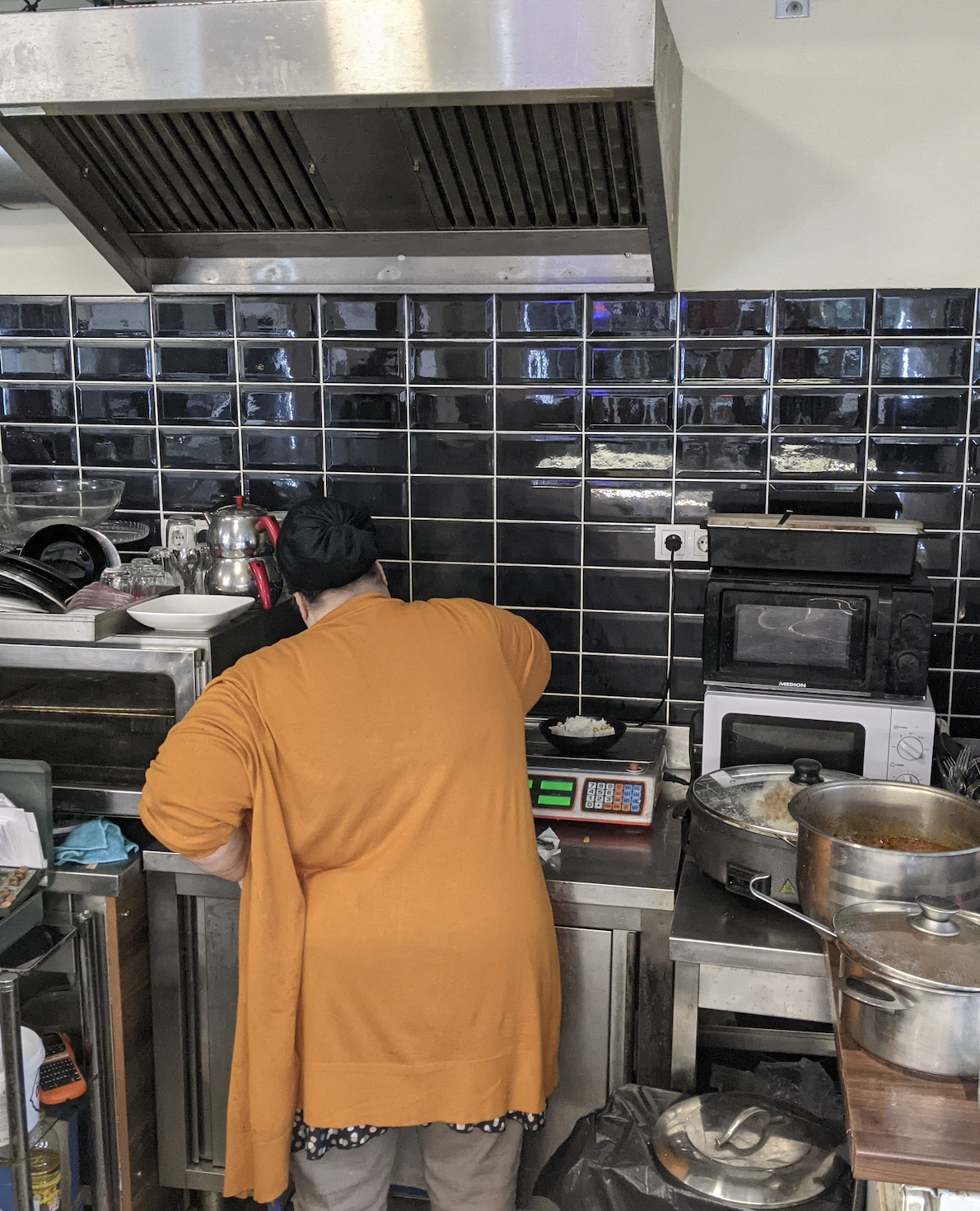
“I had 10 euros to my name, but I had a vision,” she says about the foundation, setting a photo album down on the table with pictures of some of the 800 families she helped move through her center near Hauptbahnhof. She was honored to cut the cord of two babies born under her watch. But she stretched herself too thin.
“Everything was coming from everywhere. People would donate food, clothes, equipment – but not money,” she says. Sinem didn’t have enough to pay her bills, and found herself having to decide between hot water and electricity for her family. She recognized it was time to move on and think smaller. She opened Bol Kepçe just eight months before the pandemic hit
Folks were waiting for tables, she was offering cooking workshops, and business was booming, and then Covid pulled the rug out from under her. “It was just too difficult,” Sinem says. It still is. “I started making more and more pickles, since that’s what folks in the neighborhood wanted, especially the Bulgarians and the Turks,” she says. “And I don’t need oil or unhealthy preservatives or expensive meat to make good pickles!”
She does it all by hand, and “honestly, I love the work,” she insists. “I found my faith in the vegetables.“ She’s being literal. Sinem pulls out her phone and shows us three pictures – a carrot, a black turnip, and a plate of palatschinken, with the word “Allah” in Arabic decipherable within the foods’ natural patterns.
“There can be no money in my pocket, I can be in debt, and then God gives me a sign to keep going. It gives me strength to hold on and stay positive,” she says. There’s a layer of vulnerability under her brightness, but she never stops being warm, even as she touches on challenging topics, like the far-right turn against immigrants in Austria.
“There’s all kinds of people here in the 10th, just like anywhere else. People with problems, people without problems. People with patience, people without patience. It’s not for me to say that people are like this or they aren’t, but politicians, they love to point fingers.”
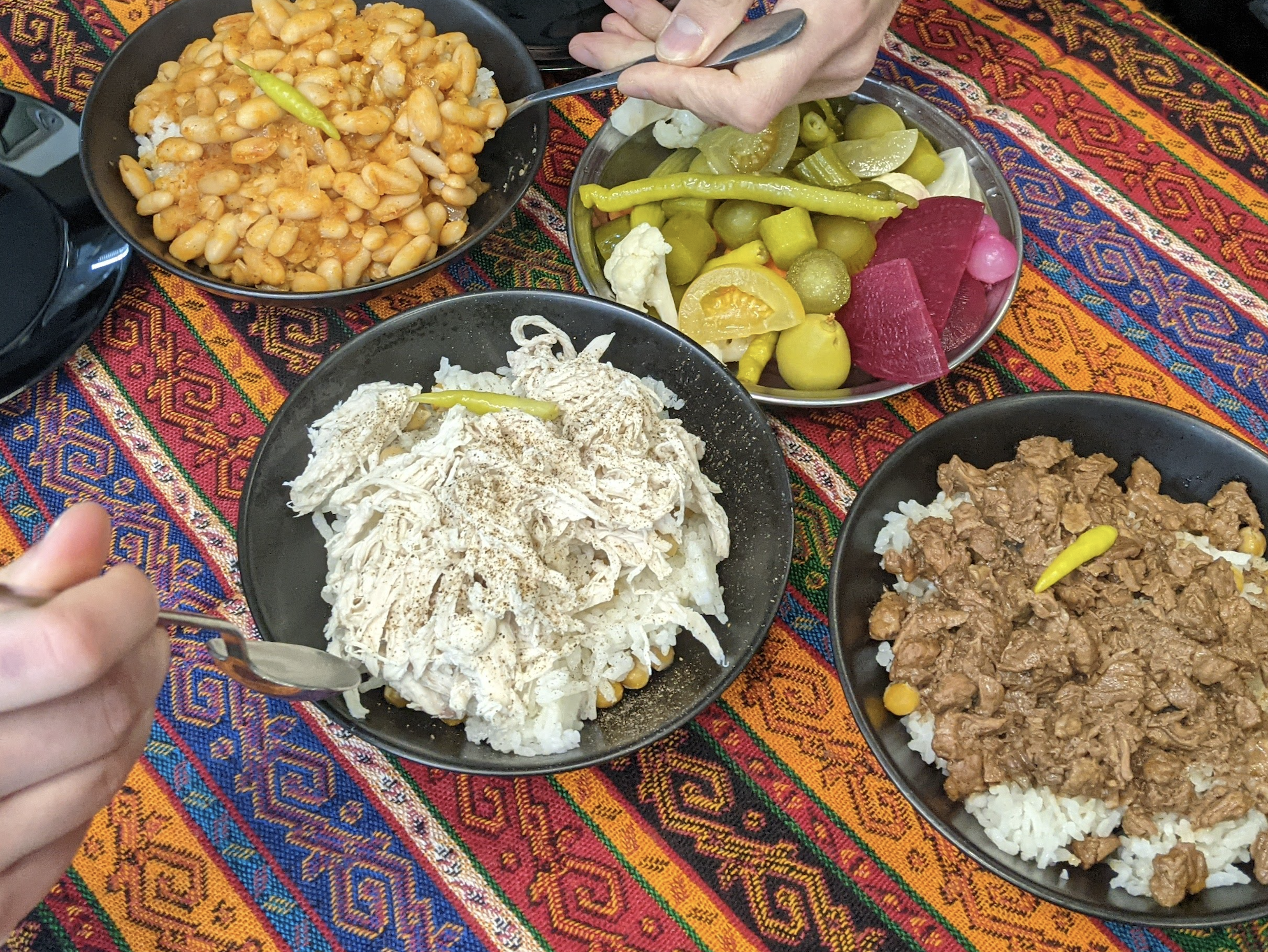
As we talk and eat, customers come by to order bags of pickles. One man, a Turk from Denizli, is disappointed to hear Sinem is running low on lahana turşu (cabbage pickle). He makes her open up a batch that isn’t quite ready.
“Why cabbage?” I ask him. He looks at me like this is the most ridiculous question in the world. “Because I like cabbage,” he says.
“Well, what about kraut, then?” I rib. “Can’t you get that pretty much anywhere?”
“Lahana turşu is just one tick better,” he says, finally laughing. The man has driven in from Krems, and he doesn’t want to leave without his cabbage pickle. Ali agrees. Kraut, as good as it is, is just not the same.
Weiterlesen
